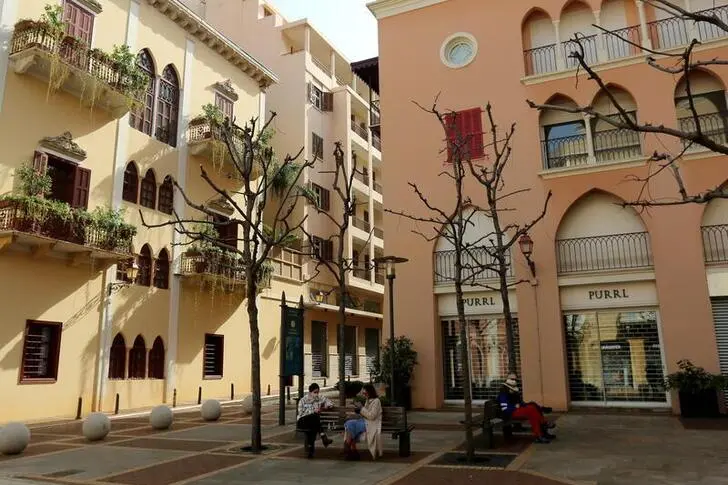PHOTO
Jean Beiruti, secretary-general of the Tourism and Trade Unions Federation, said Lebanon had succeeded in gradually reducing the number of COVID-19 infections which would encourage tourism establishments to soon resume their work.
“We call on the authorities to ease measures in open places such as swimming pools, restaurants and outdoor cafes, and extend the opening times until after midnight instead of 9:30 p.m.,” he told Arab News.
Although domestic tourism did not cover all losses, it was sufficient to keep the sector going, he said.
Beiruti said that Lebanon was facing challenging times because of the pandemic and a “stifling economic crisis.”
The crisis had caused 50 percent of tourism establishments to close down or suffer severely, he added, and the tourism sector constituted 20 percent of national income.
“Our problem today is political. If the difficulties are resolved, the country will recover economically. But until the matter is resolved, we depend today on domestic tourism.”
His remarks came as daily Ministry of Health statistics indicated a decrease in the number of deaths and new coronavirus infections. It will resume a total lockdown and curfew for the upcoming Eid Al-Fitr holiday.
Lebanon’s total number of coronavirus infections exceed 500,000 and the death toll has reached 7,278.
“Despite all the improvement in the pandemic situation in Lebanon, we are still in the fourth pandemic classification, which is a dangerous classification,” said Dr. Abdul Rahman Bizri, who heads the National Committee for the Administration of the Coronavirus Vaccine.
But the country could move to a different classification if the number of infections continued to decrease, he added.
“We may move to the third classification, which means that gatherings will be allowed for 10 people, more customers will be allowed in restaurants and the opening times of tourism and commercial establishments will be prolonged," he told Arab News. "We may, within a month or two, reach the second classification but it depends on the implementation of measures similarly in all regions, and this is what we see happening during the implementation of the total lockdown so far."
He emphasized that citizens needed to understand that they were the “basis for confronting coronavirus.”
Lebanon’s vaccination rollout is no more than 6.3 percent through the Ministry of Health’s program, in addition to the programs being carried out by the private sector at its own expense to vaccinate workers.
These efforts raise the vaccination rollout to approximately 10 percent for the first dose and 3.5 percent for the second.
But Bizri considered this percentage to be “impressive” and attributed the slow inoculation rate to the late arrival of vaccine batches.
He anticipated that a million doses would arrive in June but insisted that people needed to stick to preventive measures while immunity was being built up.
Health Minister Hamad Hassan announced on Sunday that Lebanon had taken measures to restrict the spread of the Indian variant by making travelers from there observe a 14-day quarantine in a third country before entering Lebanese territory.
Although the virus spread rapidly, it had the same symptoms and the existing vaccines covered it, the minister said.
Dr. Firas Al-Abyad is the director of the Hariri Governmental University Hospital, which specializes in receiving coronavirus patients.
He warned of “indolence” with preventive measures and “individual recklessness,” stressing the need to draw lessons from India’s COVID-19 catastrophe in order to avert a deeper crisis in Lebanon.
“The virus comes as a wave, but sometimes it comes like a tsunami. This is what happened in India. The acquired immunity from previous infections does not last for a long time and vaccination rates are low, which does not help in reaching the required community immunity. Our situation is not better than the situation in India, which has a good health system, but the tidal wave of coronavirus led to the collapse of this system.”
Lebanon had almost faced a similar situation, he added, but came back from “the edge of the abyss.”
Copyright: Arab News © 2021 All rights reserved. Provided by SyndiGate Media Inc. (Syndigate.info).





















